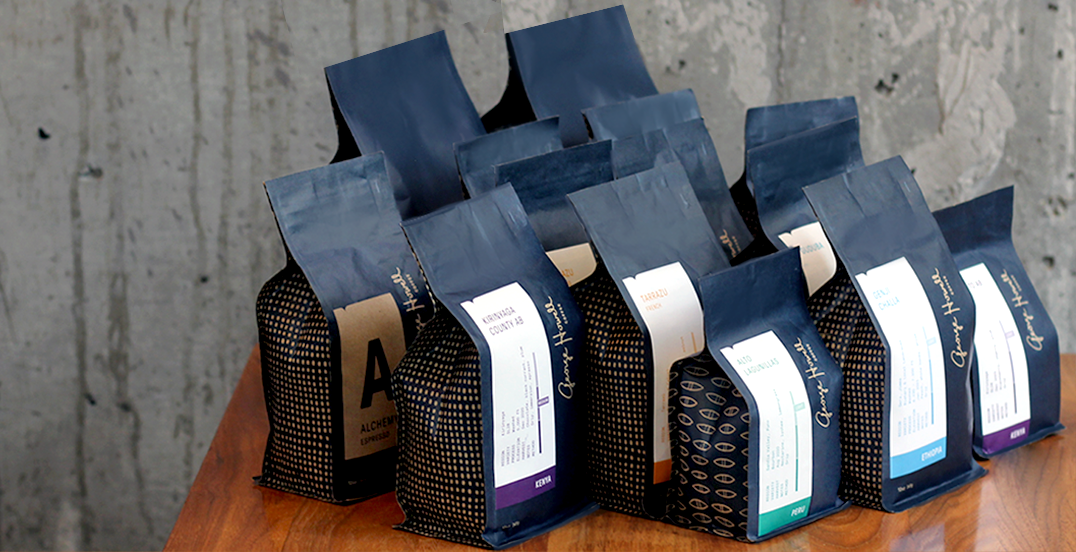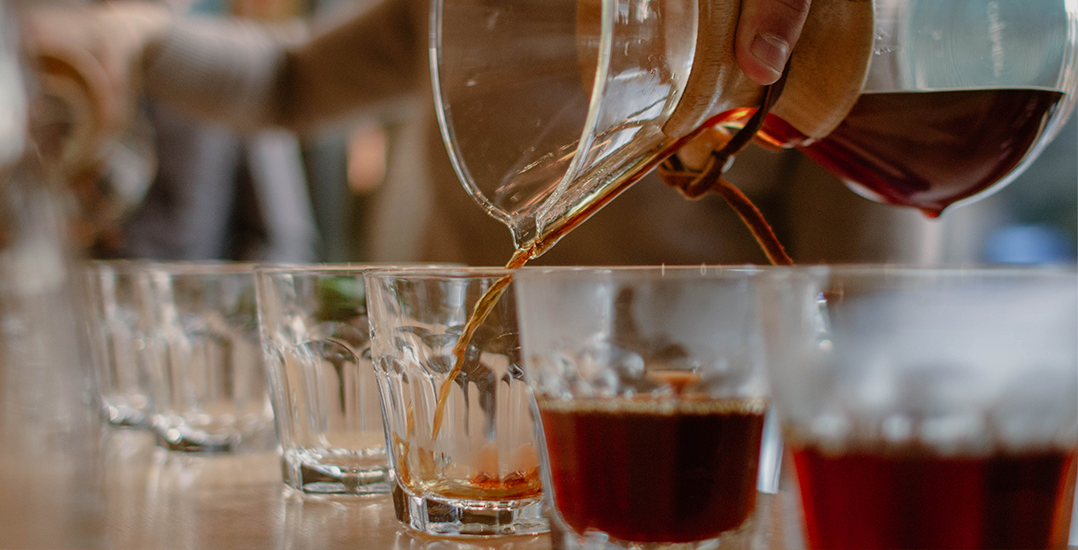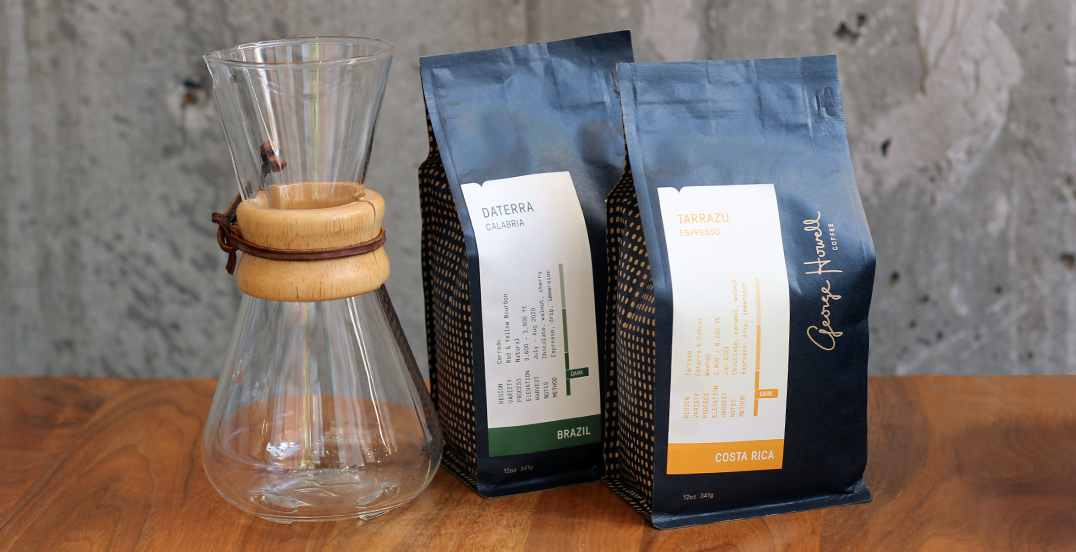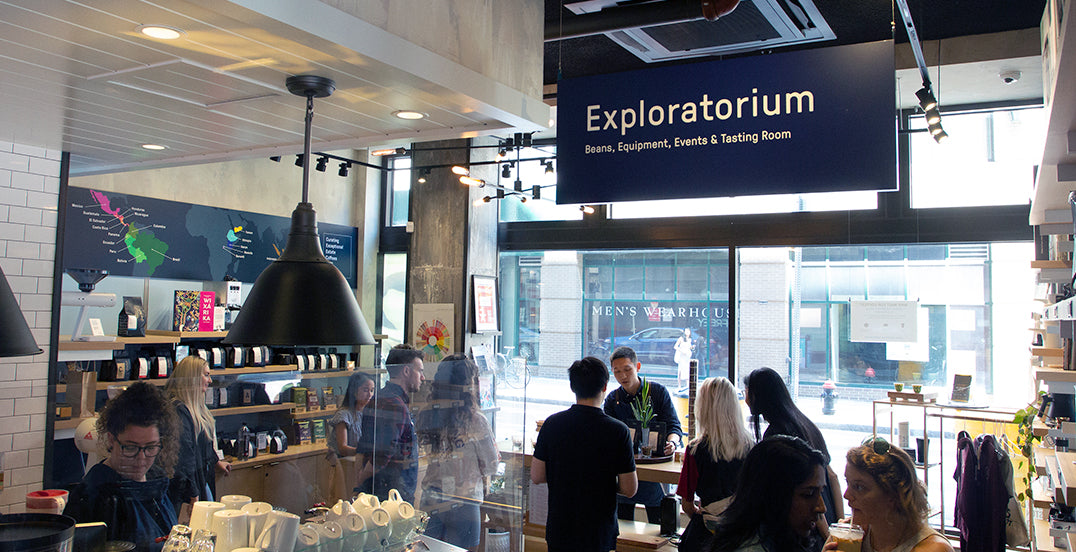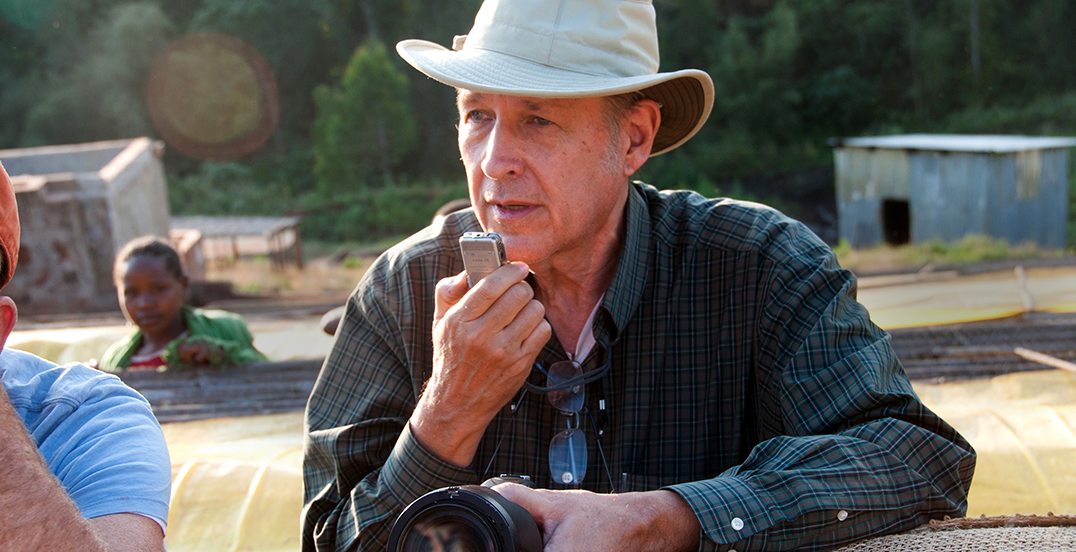We first introduced Mamuto last year in September, 2006. I believe it was the best lot auctioned in Kenya that year (all Kenyan coffee lots were auctioned through 2006; this year the system was “liberalized,” permitting direct sales as well as auction coffee). In November it received Coffee Review’s first-ever score over 95. We now have Mamuto’s best lot from the most recent harvest, November-December of 2006. We purchased this lot directly and without hesitation; it was, again, the most outstanding lot we tried this past buying season and we always cup the cream of the crop!Mamuto grows at 5,000 feet elevation in the district of Kirinyaga, beneath the slopes of the usually overcast seventeen thousand plus foot Mt. Kenya, looming above to the north. The soil is a deep red-orange volcanic loam in a very gentle undulating terrain.The owner, Walter Paul Mathagu, was an agricultural officer serving the government of Kenya for seventeen years before retiring in 1987. During that time Mrs. Mathagu managed the farm (when I visited their farm last week, she was in Nairobi and so I was not able to meet her). He has thus been able to provide much skill and knowledge to developing the coffee trees on his farm. Taking inspiration from their family Mr. Mathagu explained to me that he and his wife named the farm by combining the first two letters from three words: his name, Mathagu, as the father; Muthoni, his wife’s maiden name, as mother; and toto, meaning child or children in Swahili: thus Mamuto. Mr. and Mrs. Mathagu have six children - three boys, three girls.Besides coffee the Mathagus maintain a herd of dairy cattle and grow bananas, maize, beans and macadamia on their 21 acre farm. Thirteen acres are dedicated to coffee.Farmer: Walter Paul and Muthoni Mathagu
Region: Kirinyaga
Altitude: 5,000 ft.
Rainfall: Low to moderate+
Soil: Volcanic loam
Arabica variety: 95% Bourbon SL 28 and SL 34, 5% Ruiru 11
Size of Farm: 21 acres total; 13 acres of coffee

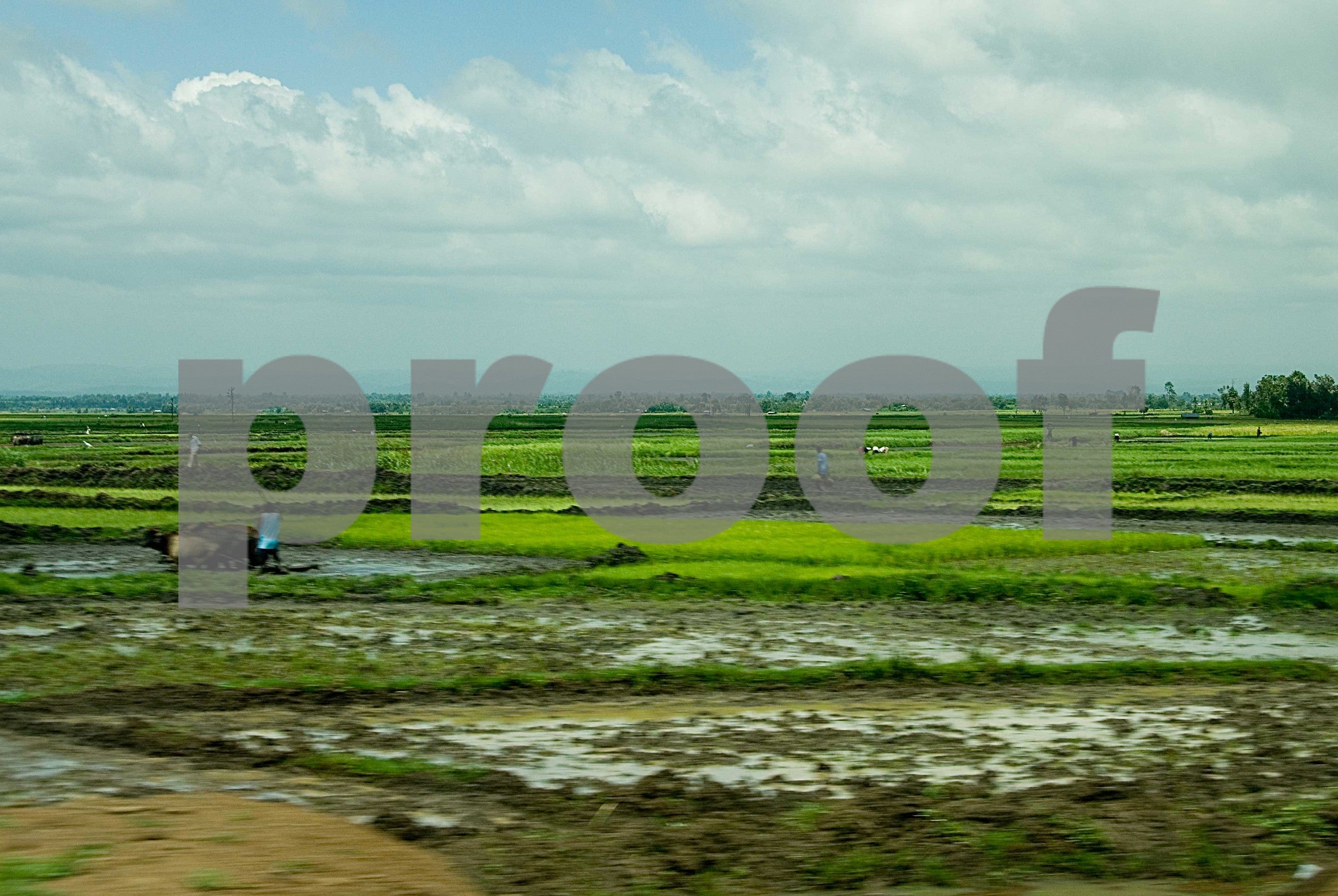
The next day we take off for Mamuto Farm in Kirinyaga. We descend very gently to 4,000 ft where there are rice fields.
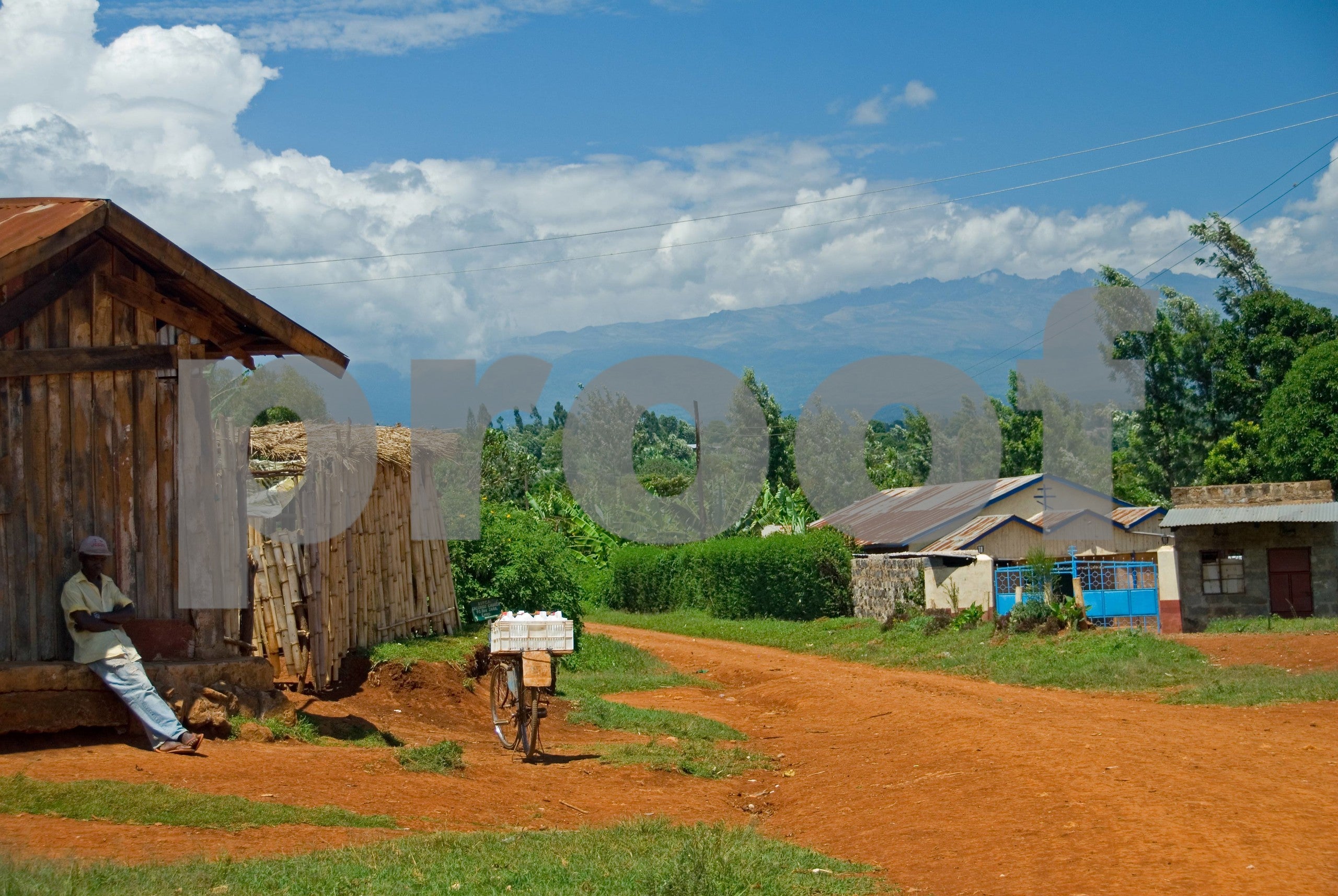
Higher up again and nearing Mamuto Farm, with Mt. Kenya to the right.
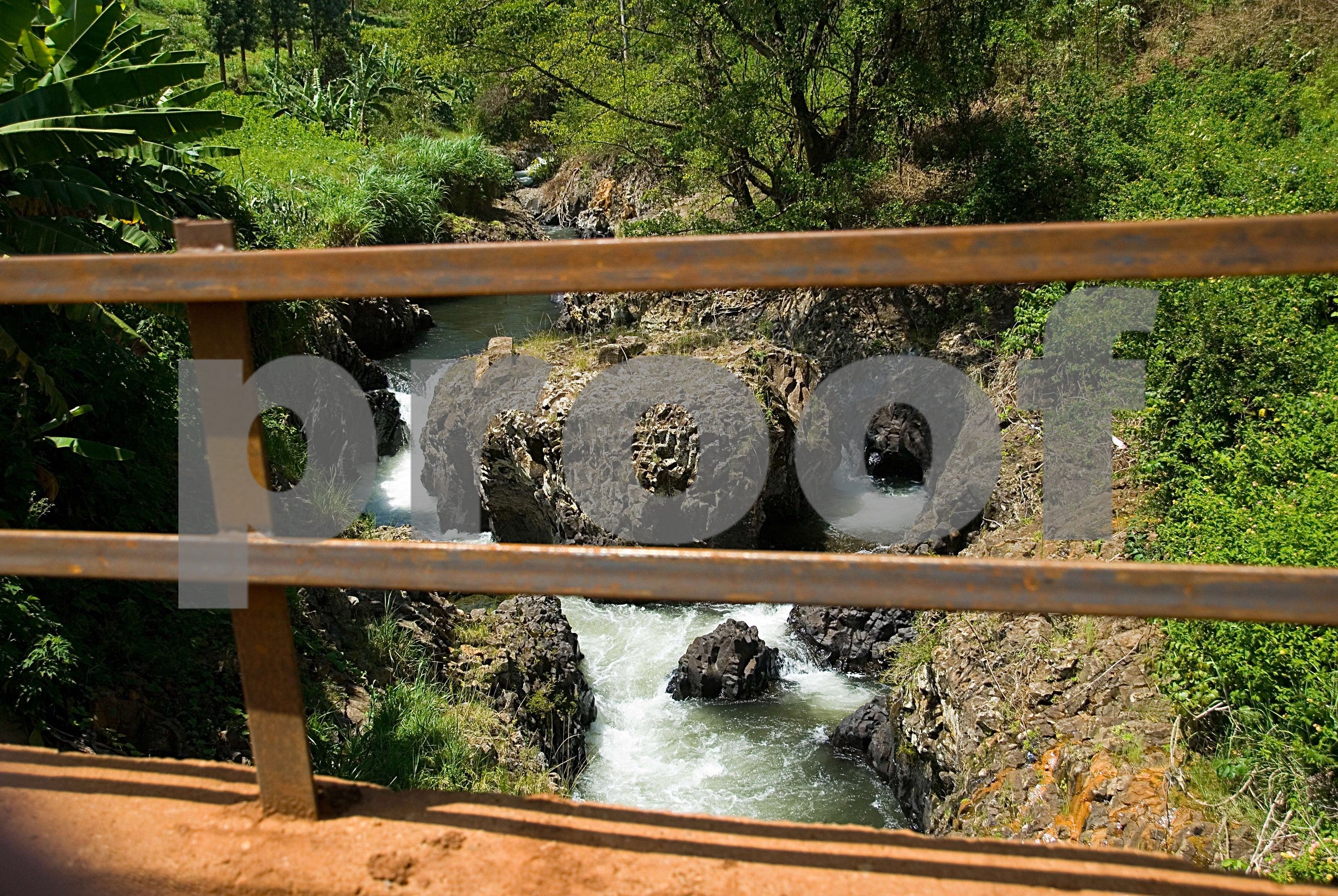
Clear streams
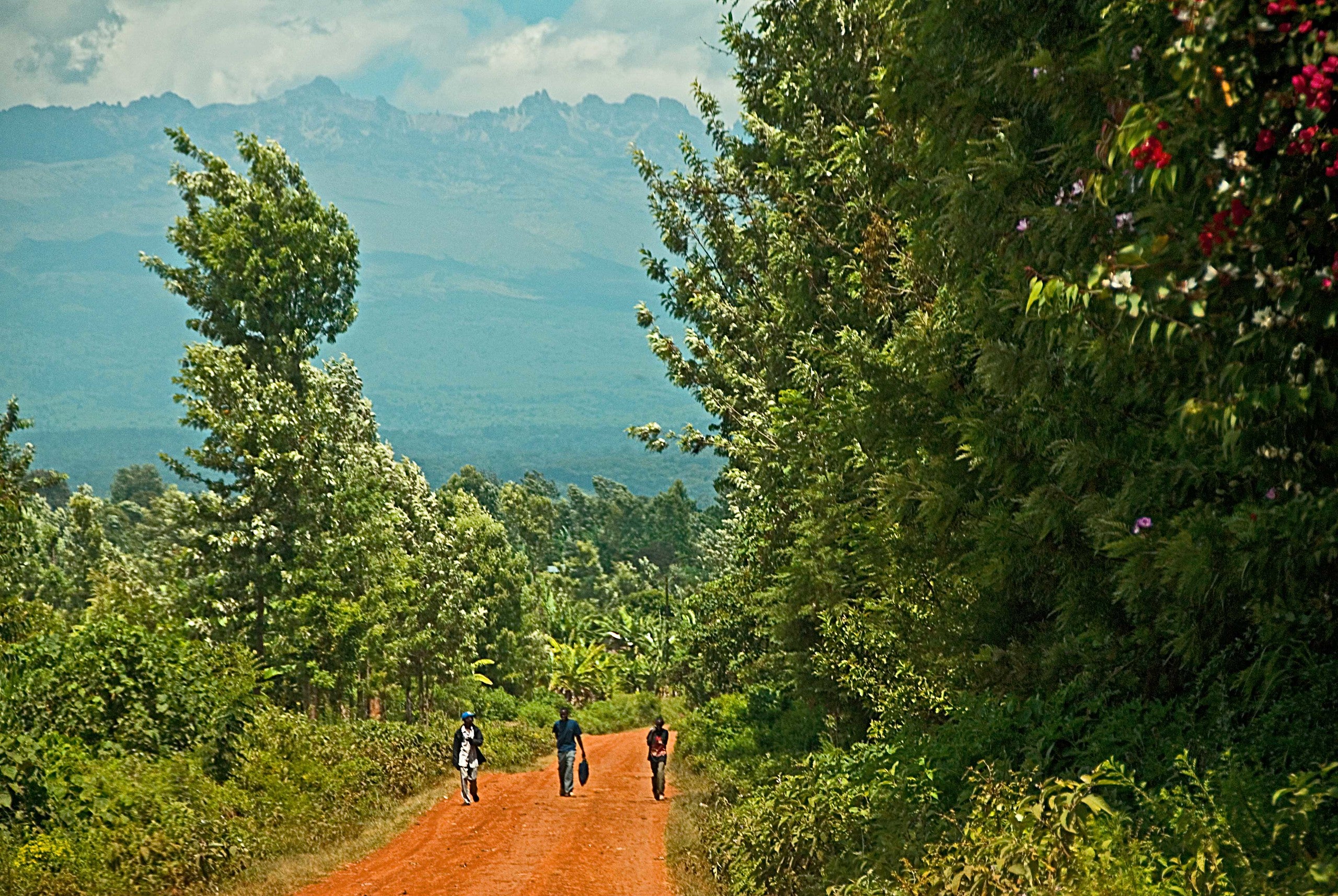
Nearing Mamuto Farm we are back up around 5,000 feet. Mt Kenya, over 17,000 ft., looms before us.
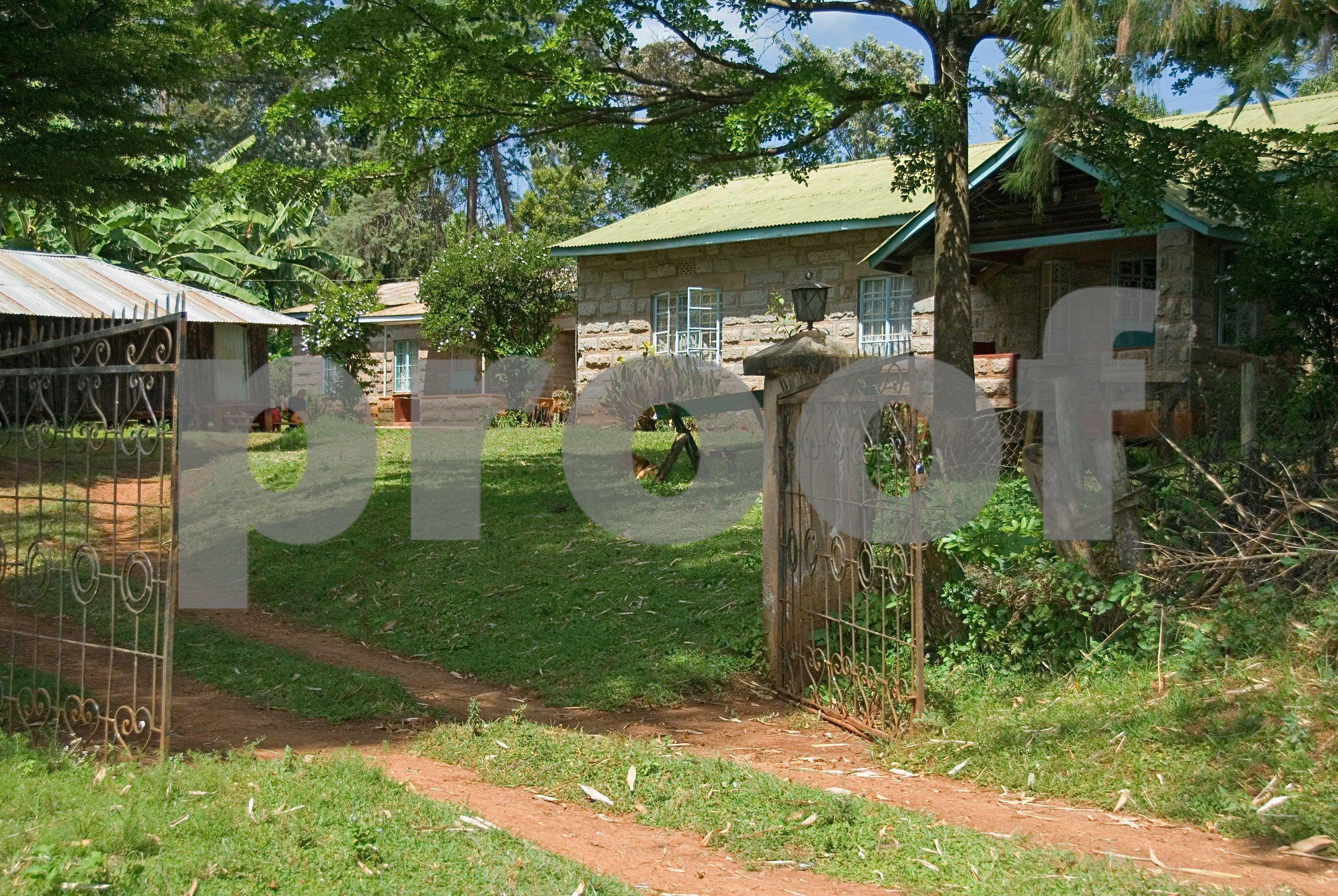
Mamuto!
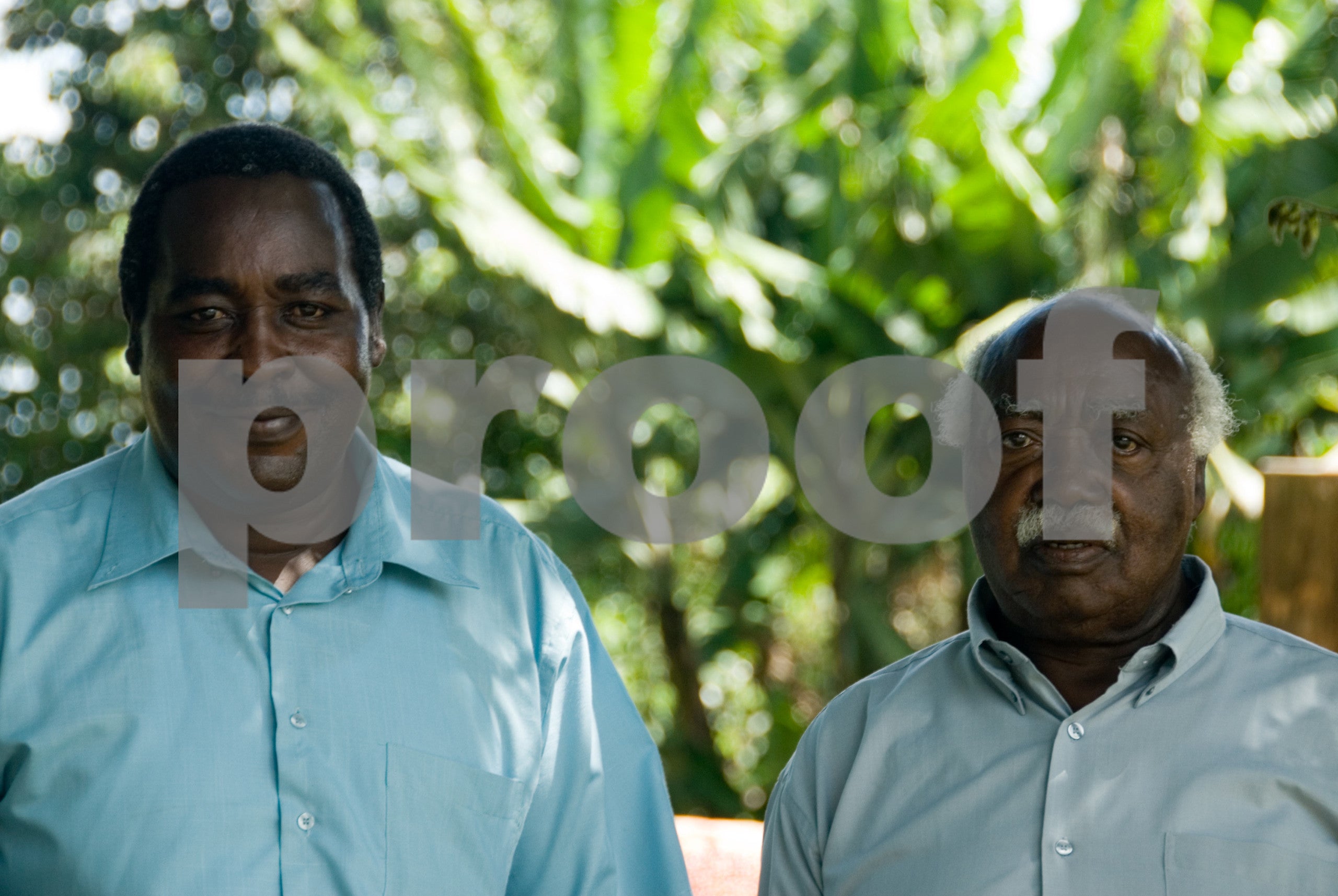
Walter Mathagu and his son Patrick who is taking over the farm. Walter was a colonel in the army; it shows! He is engaging, anxious to inform, direct, and carries himself with natural authority.
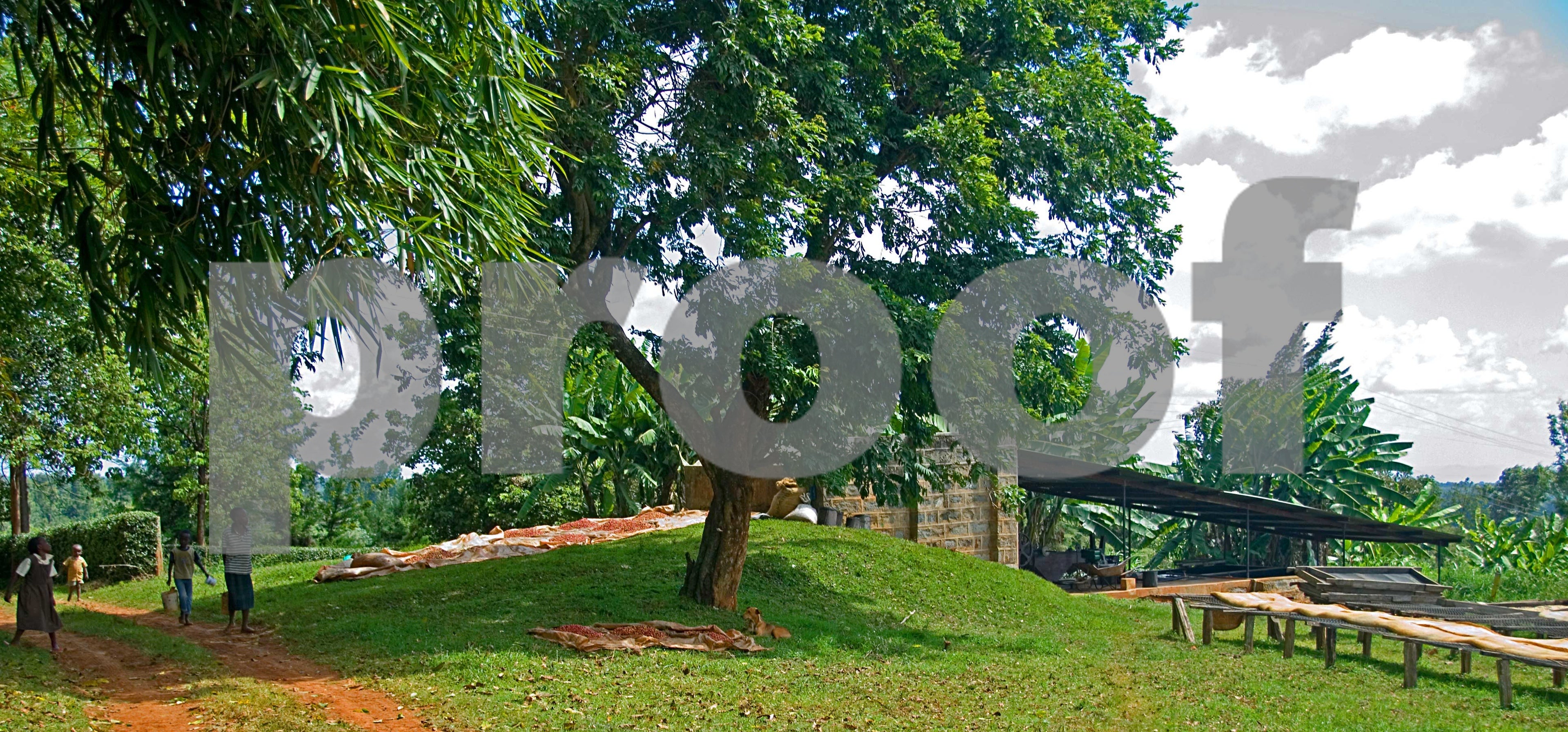
View of receiving, depulping and drying racks.
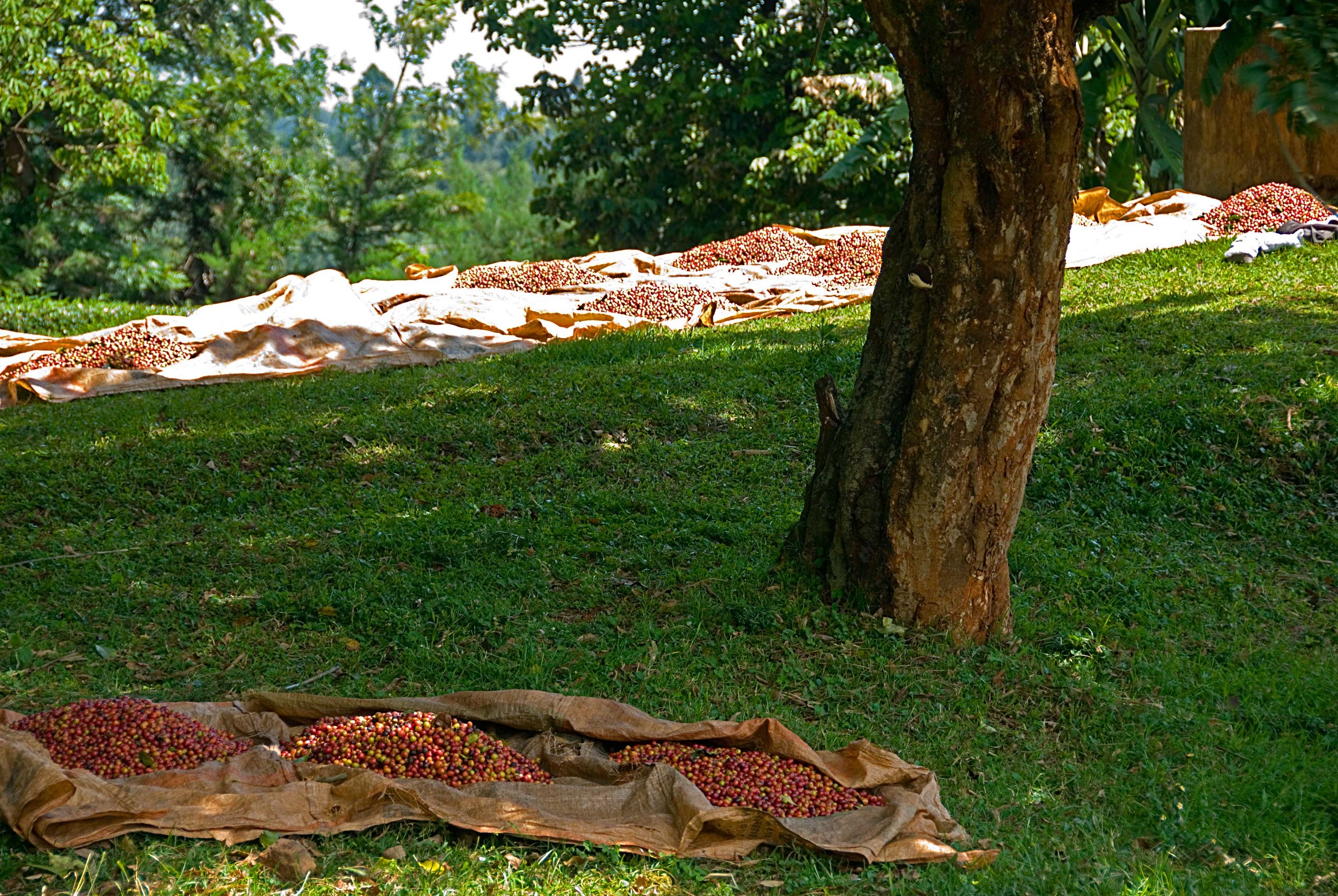
Cherries ready for sorting. The harvest is just beginning at Mamuto. Towards the middle of the harvest the cherries will be more consistently ripe.
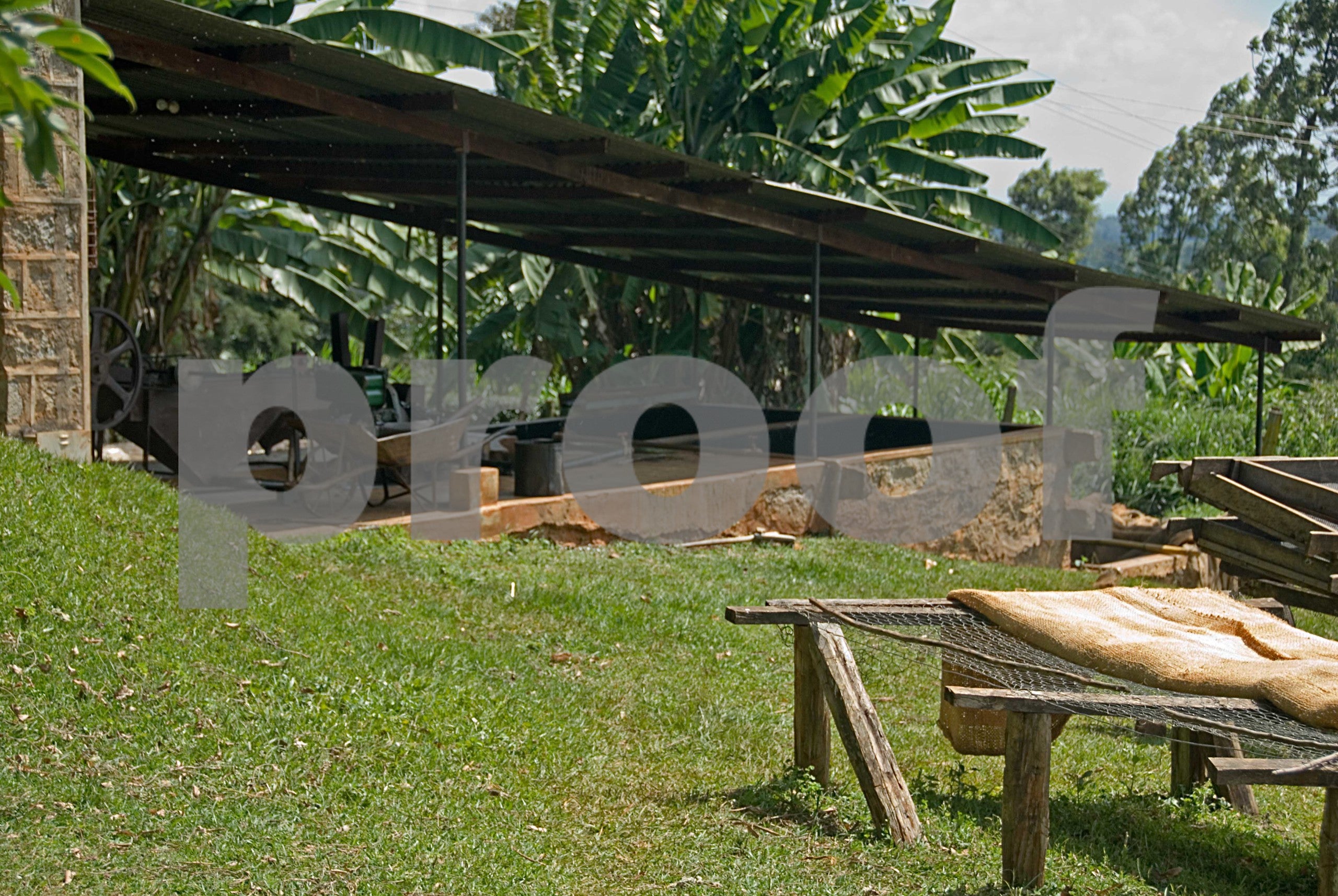
Depulping and two fermentation tanks are under the roof.
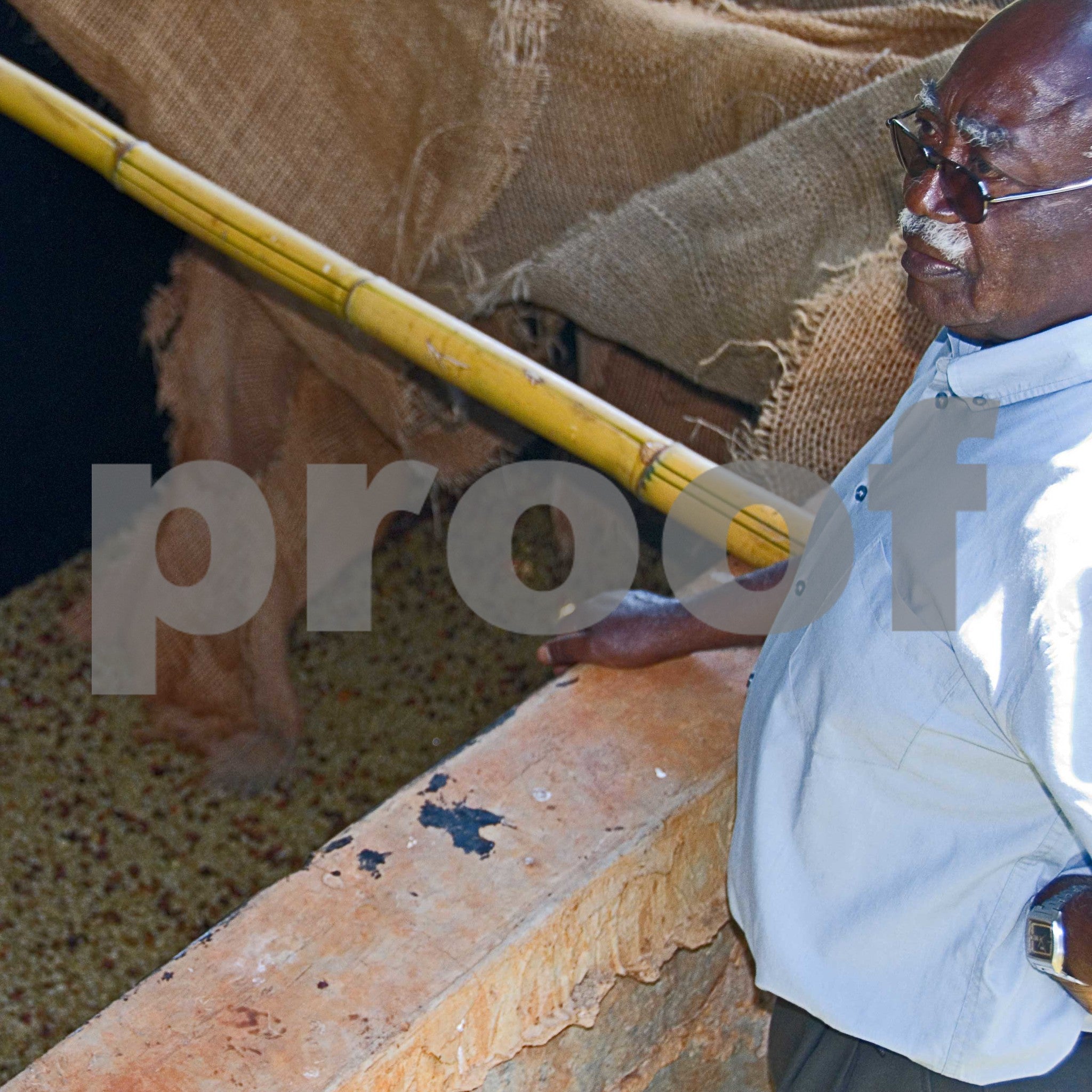
Walter Mathagu checking the fermentation of the coffee beans. Fermentation can take up to 36 hours.
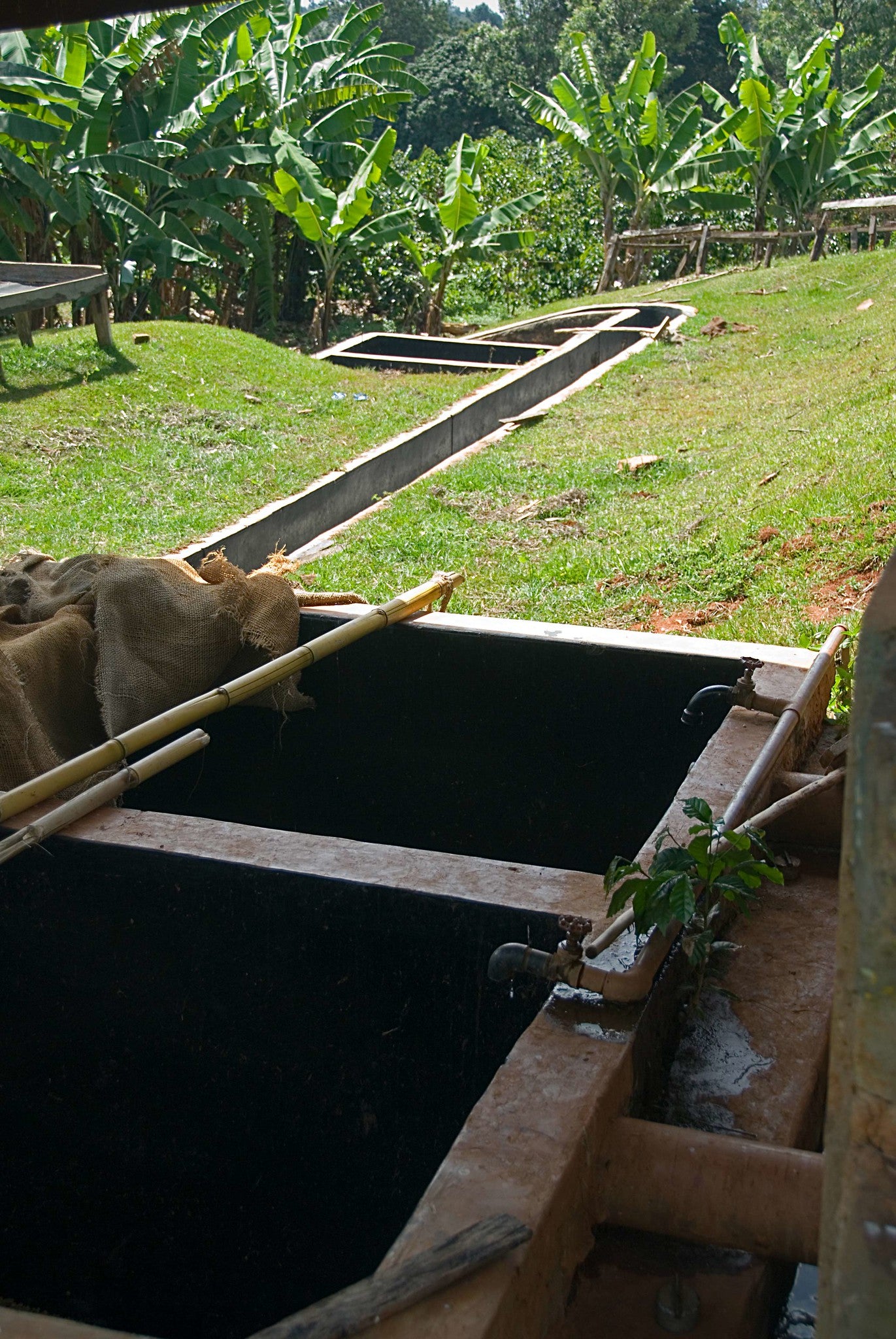
Once the beans are ready to be washed a stream of water from the faucets above the tanks carries the beans through a long concrete channel. Men will paddle the water opposite the flow, creating turbulence and thereby also separating beans by density. The denser coffees are better. They will go to the soaking tanks, seen at the far end, where they will stay another 24 hours.
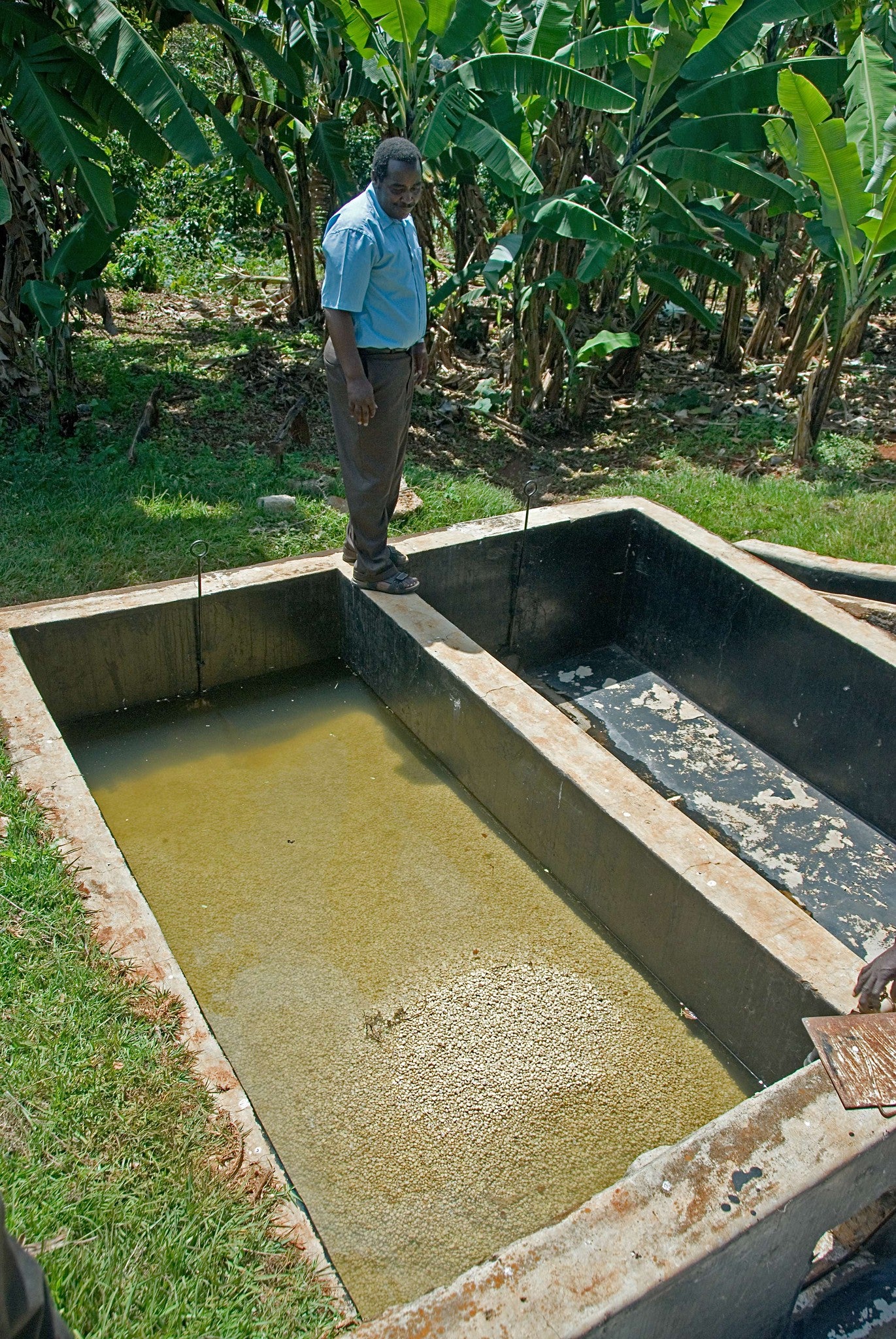
Soaking removes all residual fruit.
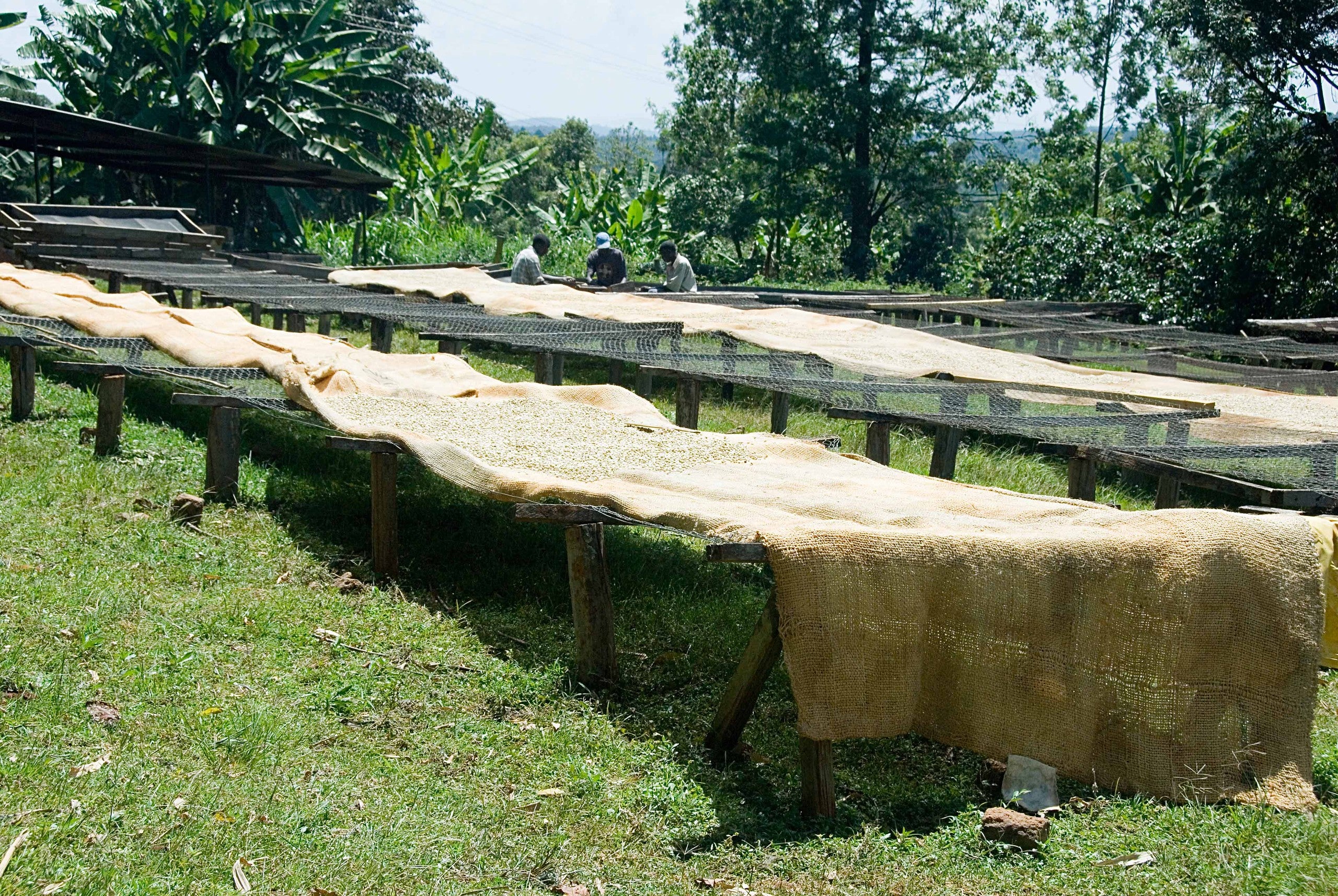
Then the beans are dried.

Sisal is used to absorb moisture and to cover the beans when the sun is hottest.
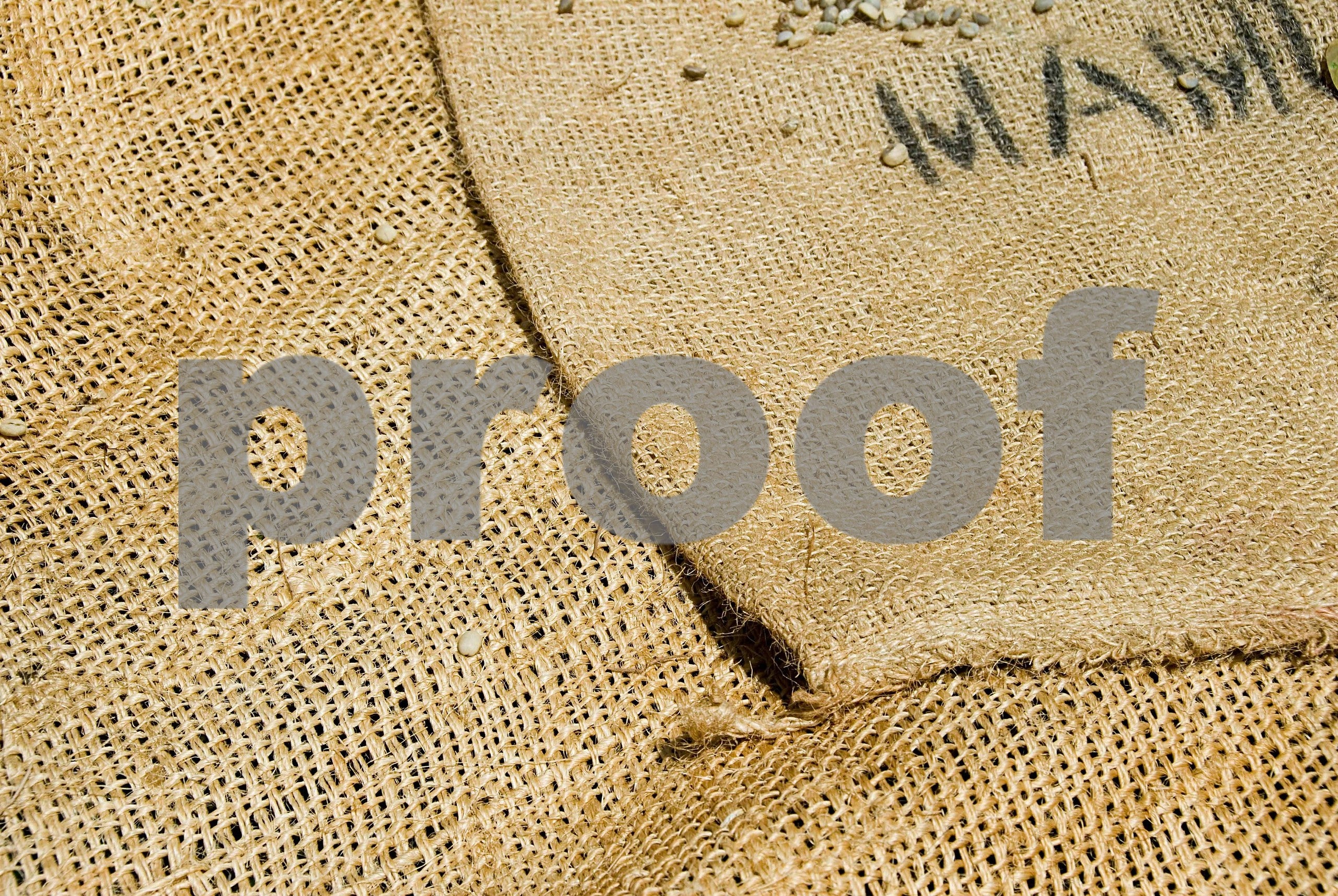
It is the same material used to bag the coffees for transport but of a coarser weave for good bean ventilation while drying.
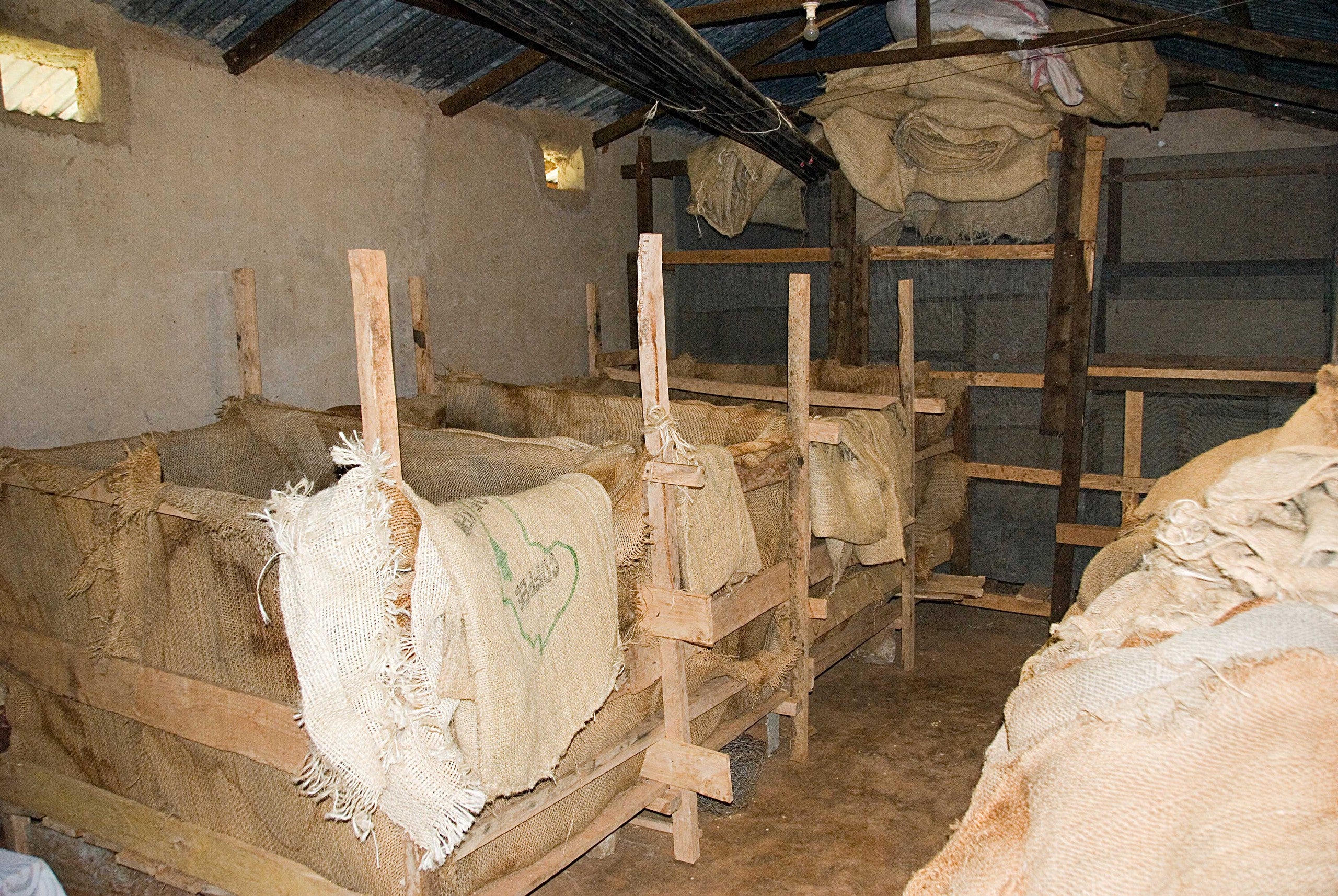
Ventilated conditioning bins. Beans will lose another 2 to 3 % moisture. There are four bins for four qualities.
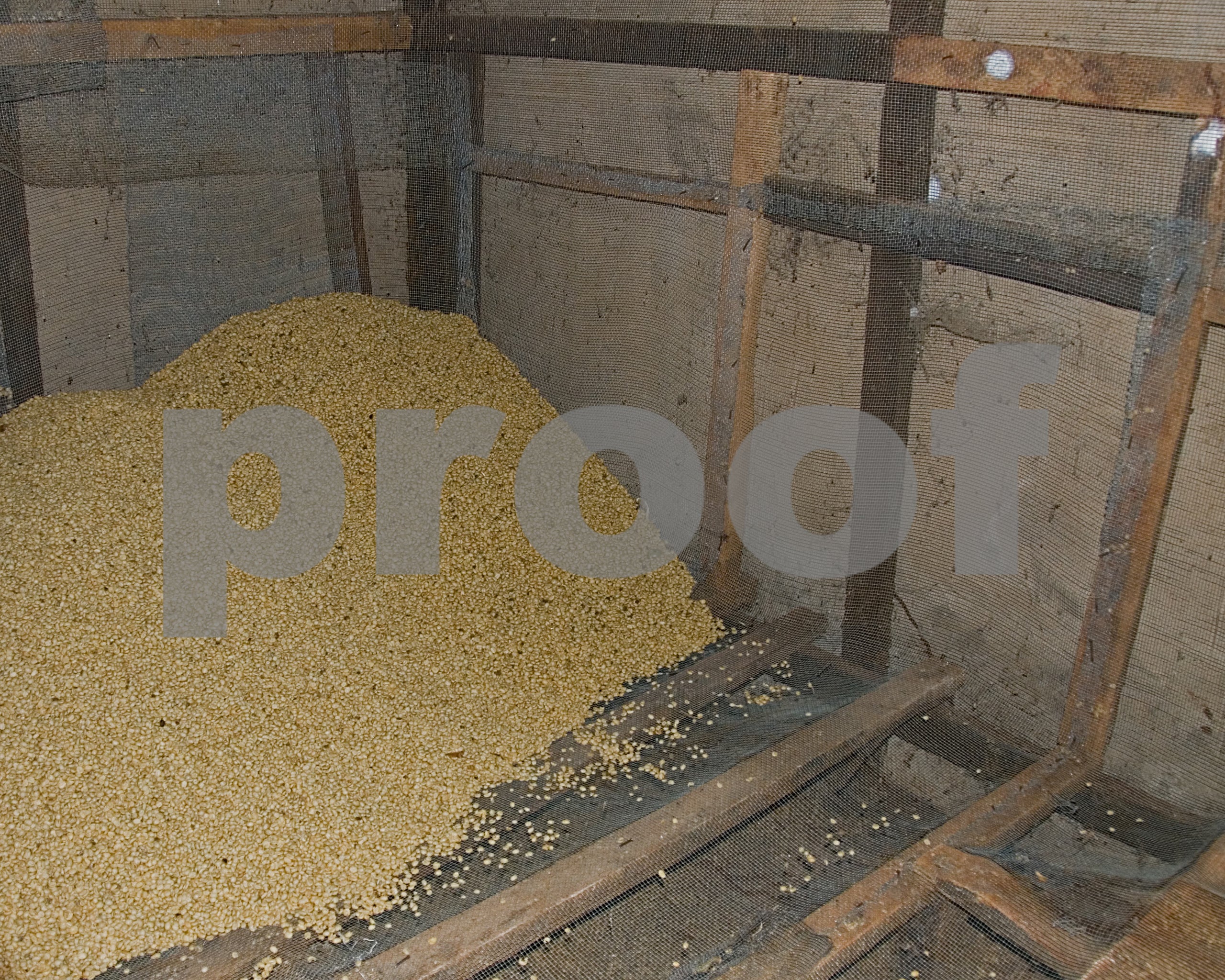
The beans must not touch the walls or the ground! This largest bin is for the top quality. From drying racks to these bins the coffee will have been dried from 65% to around 10.5% moisture at which point it is stable.
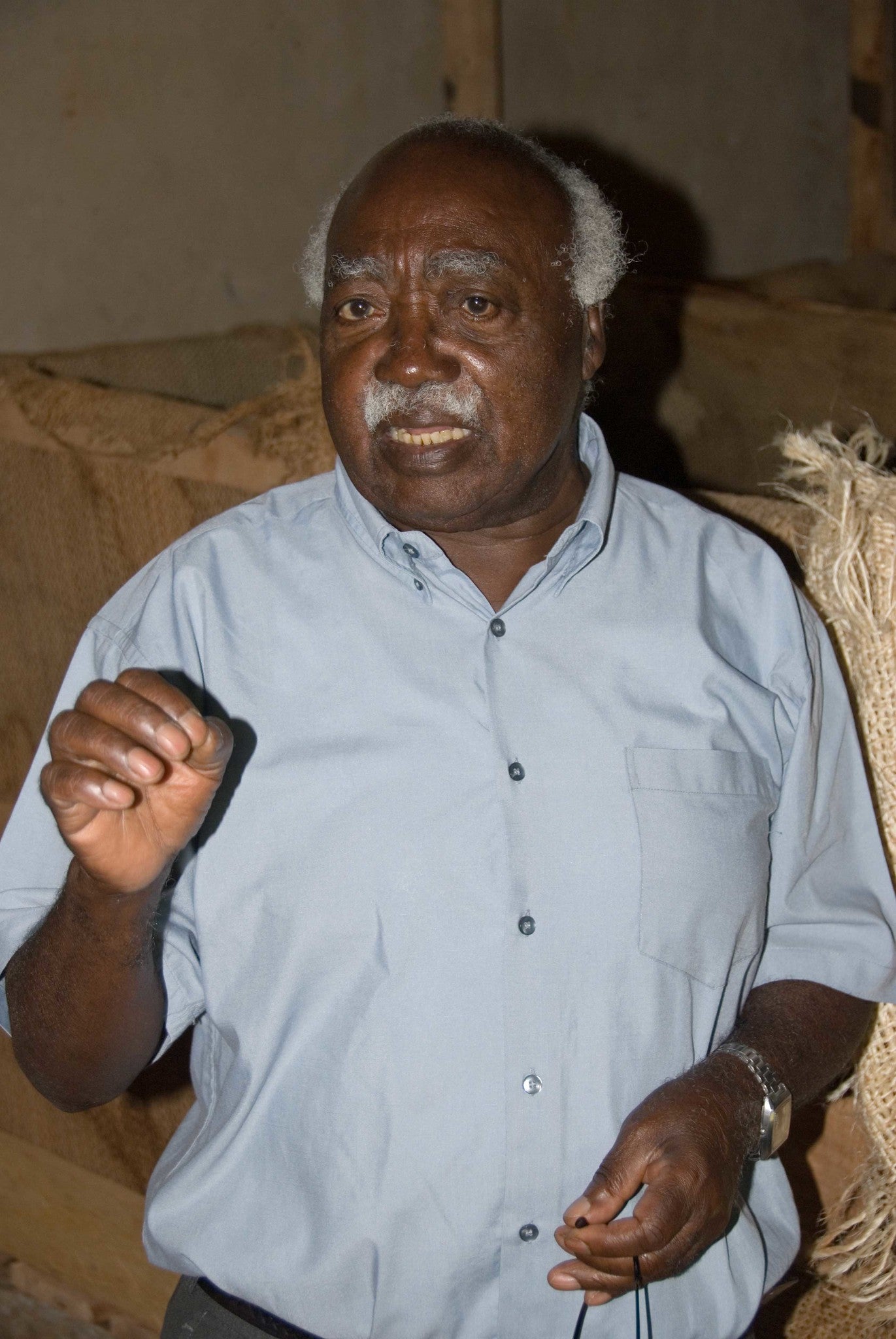
Explaining the process.
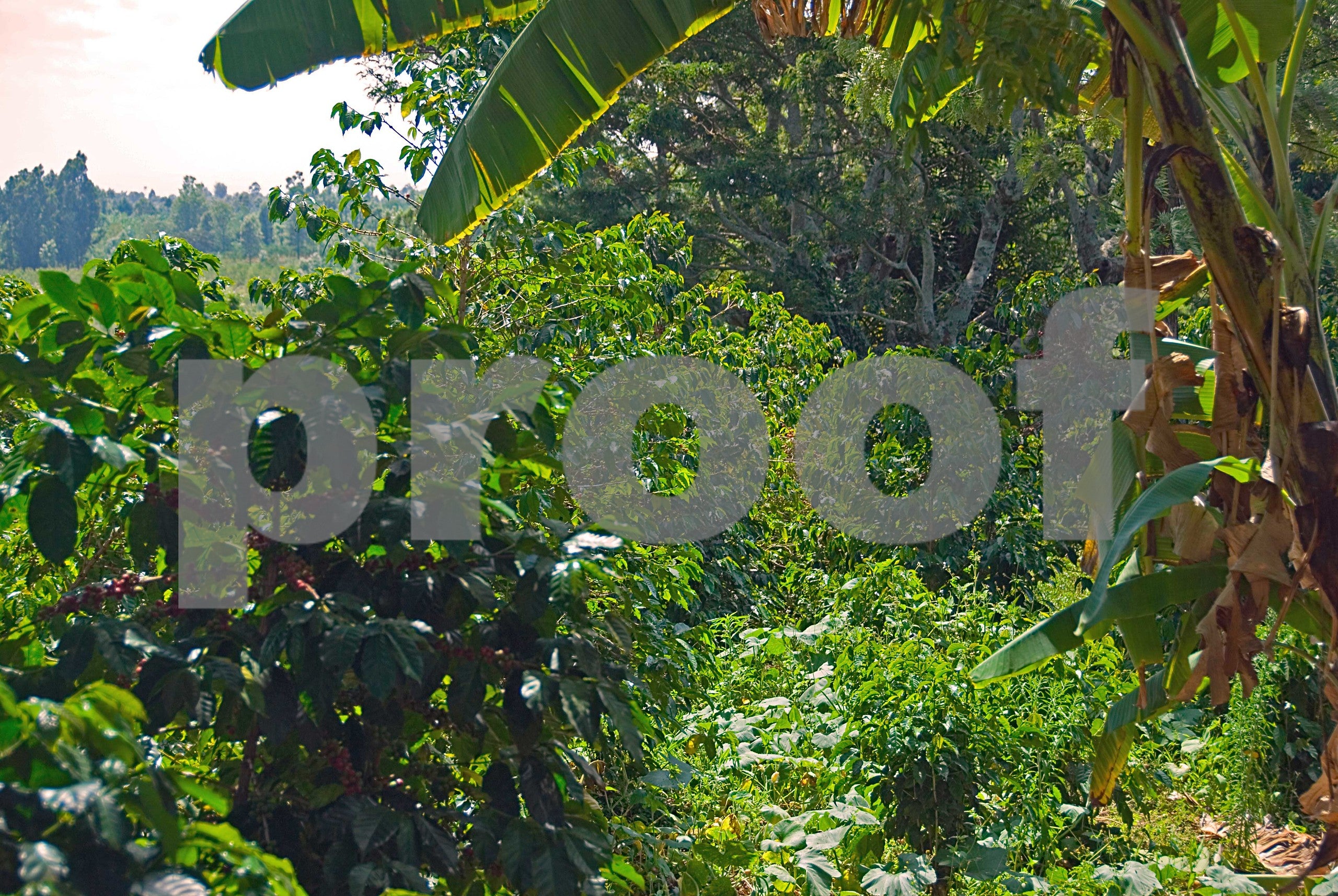
In this section of Mamuto the cherries are reaching maturity.
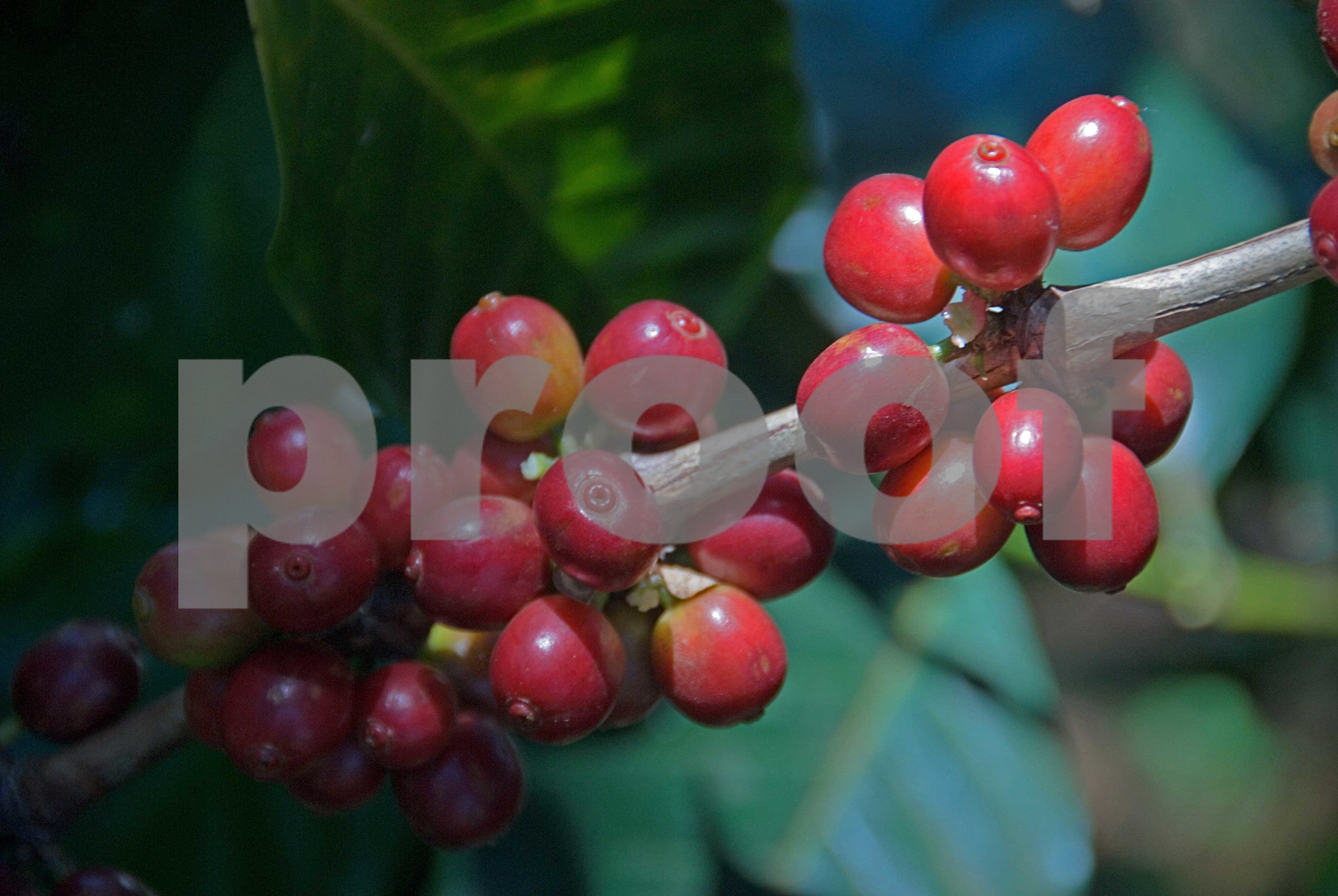
Ripe coffee cherries
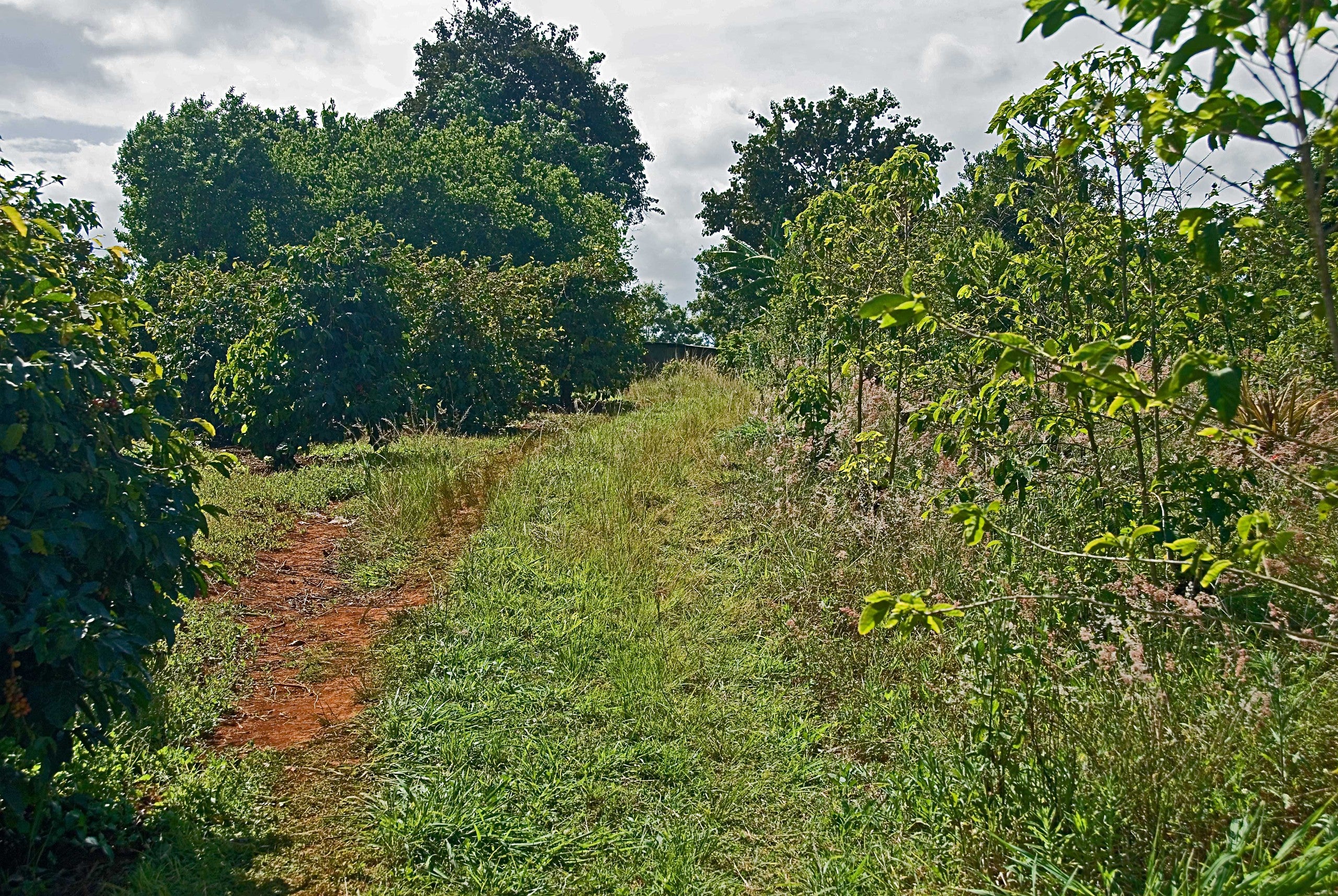
The importance of maintenance and fertilizing: neighbor's coffee plants on right.
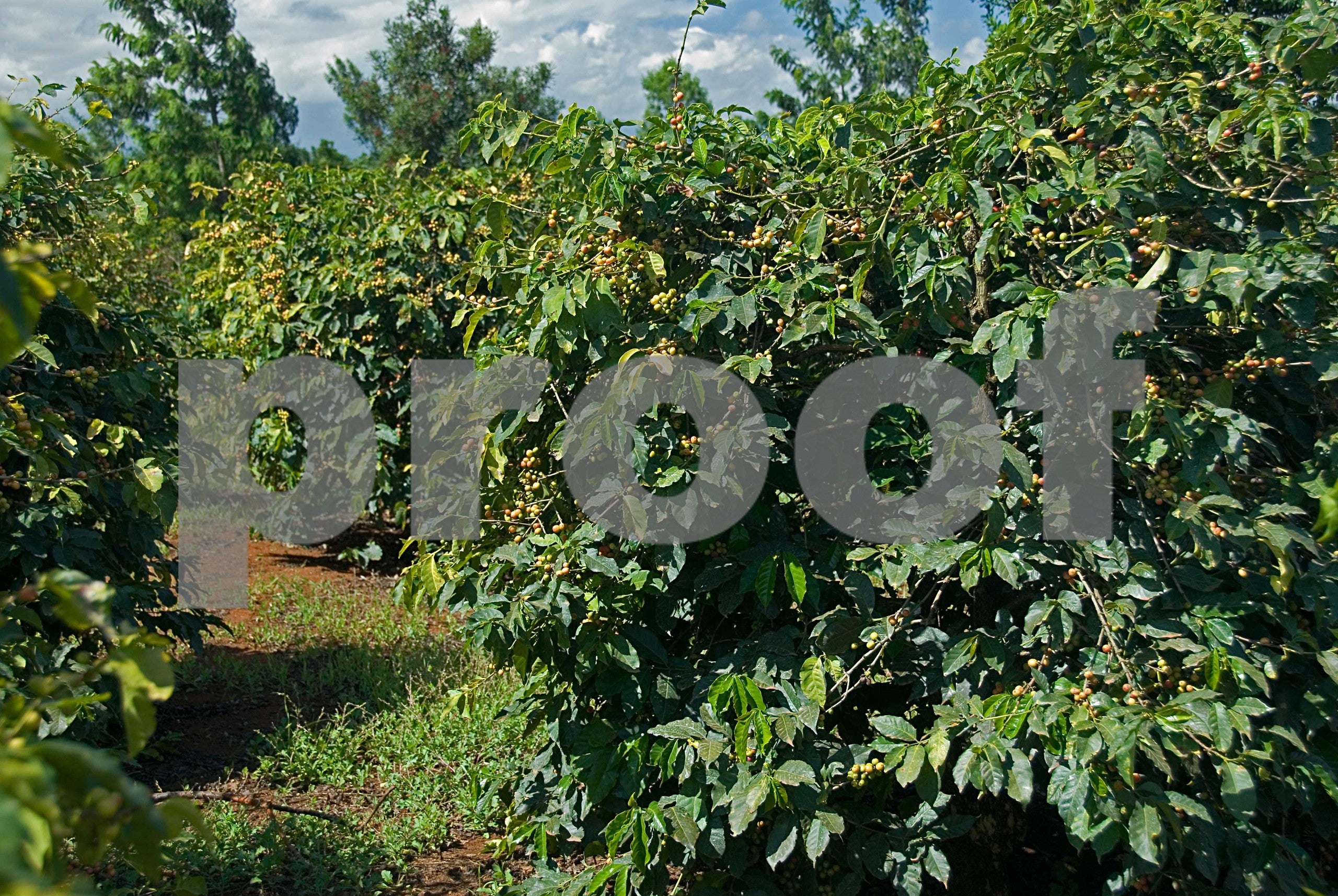
At just a slightly higher elevation on Mamuto Farm the cherries are not ripe yet. Two more weeks...
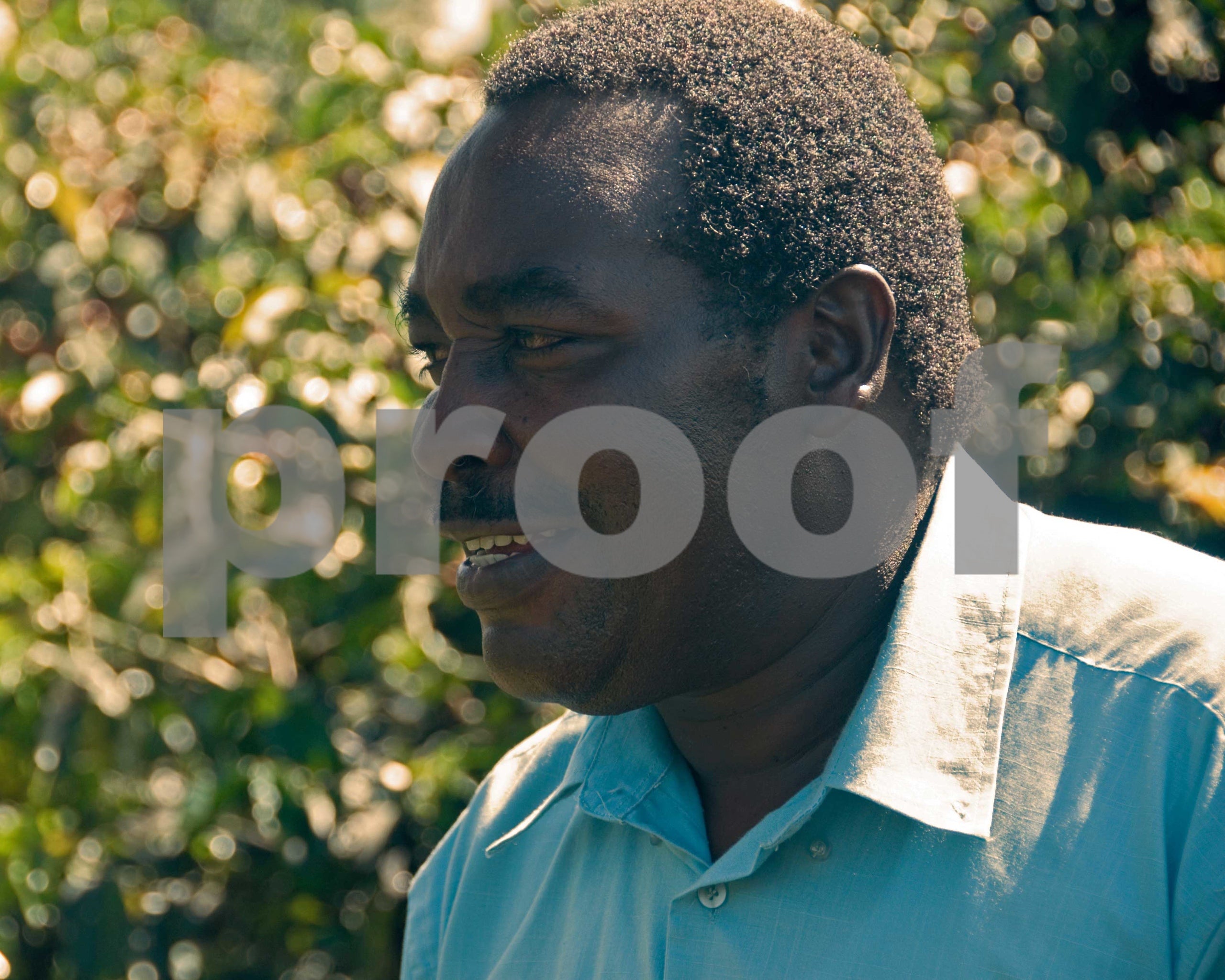
Patrick Mathagu

